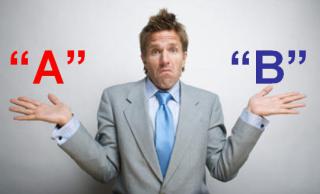Buying mortgage notes can provide the savvy investor with secure returns without the hassles and risks of buying and flipping a fixer-upper, locating tenants for a rental condo or unclogging toilets.
When most folks think about mortgage notes they think about industry giants such as Bank of America or Wells Fargo. According to Mortgage Bankers Association estimates, these institutions will originate $1.3 trillion in residential mortgages this year.
But there is a subset of the mortgage market called private mortgages, which come in several forms.
A common one is “seller financing” — that’s when the seller agrees to lend his buyer all or a portion of the home’s purchase price. Often the principal and interest payments are structured to amortize over a 30-year period like traditional loans, but require a balloon payment — meaning the borrower must remit the entire outstanding principal — after five years.
The expectation is that the borrower will, during this five-year period, refinance into a conventional-type loan from an institutional lender. If the borrower is unable to pay the full amount after five years, the noteholder can foreclose and take back the home. The main risk to the note investor is that the net sale proceeds of the foreclosure sale are insufficient to cover the note balance.
These seller-financed loans are generally used by borrowers who are unable to qualify for conventional institutional financing. This may not necessarily be a reflection of the borrower’s creditworthiness. For example, under existing institutional guidelines, many self-employed borrowers with high incomes and top credit scores still do not qualify for many institutional conventional loans.
Retirees face similar hurdles.
For these reasons, private mortgage loans generally carry a higher-than-market interest rate. It is this high interest rate that makes them attractive to real estate investors.
Private mortgages are also originated by private lenders who are willing to lend money to home buyers at above-market rates provided that the loan is secured by the borrower’s property as collateral. These investors will want to conduct due diligence not only on the borrower’s ability to repay, but also on the property’s market value and condition, should the investor have to foreclose.
Private mortgage notes are readily saleable in a robust secondary market. Although their higher-than-market interest rates make them attractive as buy and hold investments, private mortgage notes can be sold and thus converted into cash. The amount they sell for is based on the principal balance, the number of payments that have been made (referred to as “seasoning”), the number of remaining payments, the home’s appraised value and the borrower’s creditworthiness.
The concept of “time value of money” also controls how much you should be willing to pay for a private mortgage note. This concept dictates that receiving a dollar today is worth more than receiving a dollar in the future. Tools available online will calculate the present value of a future stream of income. What this means is that the seller of a private mortgage note cannot expect to sell his note for the outstanding principal balance of that note. Rather, he can sell it only for the discounted “present value” of the sum of the future payments.
To illustrate this concept, assume a seller sells his home on June 1 for $500,000; he insists on a 20 percent down payment of $100,000 and agrees to lend the buyer the remaining $400,000. He agrees to amortize the loan over a 30-year period with a balloon payment after five years.
The note bears interest at 5 percent annually. To “season” the note, he holds it for six months and receives six monthly payments of principal and interest. After the sixth payment, the outstanding principal balance of the note is $396,593. By using the present value calculator, we see that the present value of this note on Jan. 1, 2014, is $391,443. This value is then a baseline for the note’s purchase price. Depending on the other factors, such as property condition, market interest rates and the borrower’s creditworthiness, the price a note buyer would be willing to pay may be adjusted up or down accordingly.
How can a potential note investor protect himself? If possible, only buy or sell notes to people you can deal with locally. Check the local Better Business Bureau, the Federal Trade Commission and the Consumer Financial Protection Bureau Web sites.


